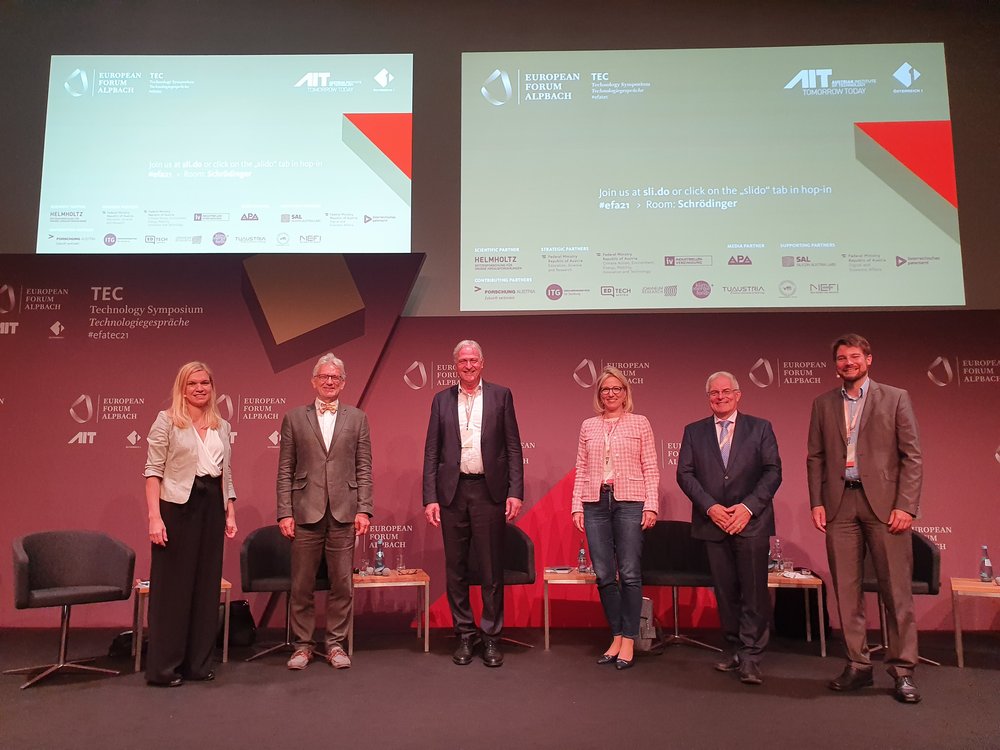The group of speakers representing the topic in a very balanced way were a mix of European experts both from academia and industry, thus giving a holistic view on the topic. The session was opened by Wilfried Eichlseder, Rector of Montanuniversität Leoben and acting president of TU Austria, with devoted welcome words. The first talk was given by Peter Moser, Vice Rector of the University of Leoben and professor of mining, with an overview of the overarching theme of the meaning of materials in and for our society and sustainable material systems. Next up was Prof. Clemens Holzer from Montanuniversität and professor for polymer processing, who addressed how plastics are produced and why they are an indispensable part of our world. This was followed by Prof. Kerstin Kuchta from the Hamburg University of Technology and an environmental technologist who gave an insight into the complexity of plastic collection and related systems and the implications of successful collection for subsequent recycling. Prof. Kim Ragaert from the University of Ghent who is material scientist took it from there by elaborating on the technical implications of recycling technology and general misconceptions related to this such as the non-biodegradability of bio-based plastics. After this Thomas Brudermann from the University of Graz and an economic psychologist, taught the audience about how oftentimes plastics are misconceived through psychological mechanisms such as knowledge overconfidence or hasty generalizations and in this way a lack of holistic informed discourse. Subsequently, Sabine Nadherny-Borutin, a food and biotechnologist from PlasticsEurope talked about the carbon cycle and the importance of closing the loop thereby preserving the carbon basis of plastics for as long as possible to minimize CO2 emissions. Finally, Harald Bleier, technology evangelist from EcoPlus, talked about our plastics heritage and the future outlook on how to best clean up our past mismanagement.
Despite calls for alternatives or replacement of the material the session has shown that plastics are a wonderful material with properties that render it versatile and highly useful for society. It has a wide variety of applications that we could not do without it our modern society, the most wonderful example most likely being high-end applications in the medical sector. Society should therefore better take responsibility on how it handles the material. Taking responsibility is an action that inherent to the concept requires human agency. Plastics cannot take responsibility and do not litter themselves. Therefore, all members of society, producers, consumers and policy makers are co-responsible for how the material is used and disposed of. In the sense of SDG12 it is time to admit we can do better and come up with solutions instead of replacing the material.
